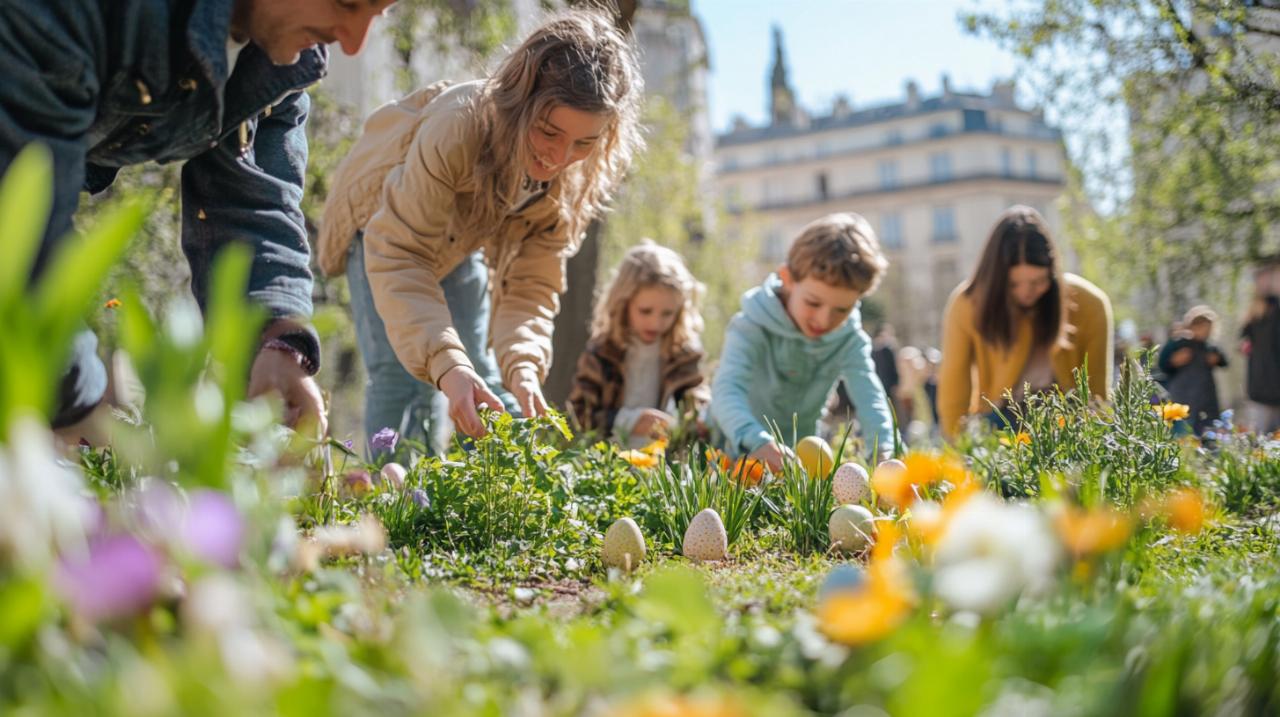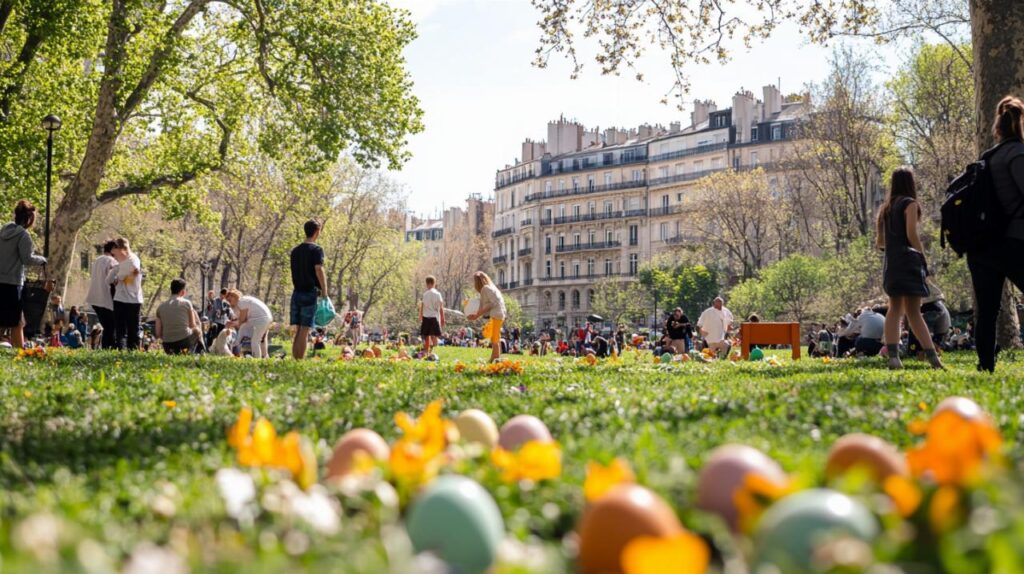In Lyon, the annual Easter egg hunt brings families together in parks and public squares, each chocolate treat wrapped carefully in foil or tucked into baskets made from woven willow. This centuries-old celebration offers more than just a moment of joy for children; it serves as a reminder that even the simplest traditions can guide us towards sustainable living tips that transform everyday routines. As the bells return from Rome and families gather for lamb and brioche, the careful attention to natural materials and mindful consumption reveals lessons that extend well beyond the spring season. When you swap throwaway conveniences for items that last, you embrace a lifestyle that honours both heritage and the environment.
Ditching plastic: lyon’s chocolate-wrapped wisdom for your home
French households have long favoured the elegance of paper and foil when wrapping chocolates, a choice rooted in practicality and aesthetics. In Lyon, chocolatiers take pride in their craft, moulding Easter treats with precision and presenting them in boxes lined with tissue or cloth ribbons rather than synthetic packaging. This reverence for natural materials reflects a broader ethos that values durability and beauty in equal measure. When you consider your own home, the same principles apply. Instead of reaching for cling film or disposable containers, opt for beeswax wraps, glass jars, or ceramic dishes. These alternatives not only reduce waste but also add a touch of warmth to your kitchen, echoing the care that French artisans pour into every handmade confection.
Swapping Single-Use Plastics for Natural Materials in Daily Life
The sight of children running across the lawns of Tête d’Or park, clutching wicker baskets filled with chocolate eggs, highlights the enduring appeal of natural fibres. Wicker, cotton, and linen require minimal processing and decompose far more readily than their synthetic counterparts. Bringing these materials into your daily routine means replacing plastic shopping bags with sturdy canvas totes, choosing wooden utensils over disposable cutlery, and storing dry goods in hemp sacks or glass containers. Each small substitution reduces the volume of waste that ends up in landfills or waterways, mirroring the thoughtful approach that Lyonnais families take when preparing for their Easter celebrations. By prioritising materials that can be composted or recycled, you create a household that respects the rhythms of nature and the longevity of well-crafted objects.
Creating reusable easter traditions that work year-round
Beyond the immediate festivities, the emphasis on reusable items during Easter can inspire habits that endure throughout the year. In Lyon, families often pass down hand-painted eggs and vintage baskets from one generation to the next, treating these objects as cherished heirlooms rather than disposable props. Adopting a similar mindset means investing in quality pieces that serve multiple purposes. A woven basket used for an egg hunt in April becomes a storage solution for vegetables in summer or a carrier for autumn fruits. Cloth napkins and tablecloths, once reserved for special occasions, can replace paper towels at every meal. This approach not only reduces consumption but also fosters a deeper connection to the objects you own, transforming everyday moments into opportunities for celebration and care.
From treasure hunt to treasure hunt: french-inspired mindful consumption

The Easter egg hunt embodies more than the thrill of discovery; it represents a philosophy of seeking out what truly matters. In Lyon, the tradition encourages participants to slow down, appreciate their surroundings, and savour each find. This same principle can guide your approach to shopping and consumption. Rather than filling a trolley with items chosen hastily, take time to evaluate each purchase. Ask whether it fulfils a genuine need, whether it has been produced responsibly, and whether it will last. The French preference for quality over quantity extends to every aspect of daily life, from the choice of a single, well-made coat over a wardrobe of fast fashion pieces to the selection of artisanal bread instead of mass-produced loaves. By applying this discerning eye to your own habits, you cultivate a lifestyle that values craftsmanship and sustainability in equal measure.
The Art of Quality Over Quantity in Your Weekly Shop
In the markets of Lyon, vendors display seasonal produce with pride, each tomato or head of lettuce chosen for flavour and freshness rather than uniformity. This commitment to quality shapes the way residents approach their weekly shop, prioritising ingredients that nourish both body and community. When you visit your local market or grocery, focus on selecting items that reflect the same care. Choose loose vegetables over pre-packaged options, buy bread from a bakery that uses traditional methods, and seek out dairy products from farms committed to animal welfare. These choices often come with a slightly higher price tag, yet they deliver superior taste and nutritional value while supporting producers who invest in sustainable practices. Over time, the cumulative impact of these decisions reduces reliance on industrial agriculture and fosters a food system that respects both land and labour.
Building community connections through shared seasonal celebrations
Easter in Lyon is as much about gathering with neighbours as it is about individual observance. Families host picnics in public parks, share meals prepared with blessed food, and organise communal egg hunts that bring together people of all ages. This emphasis on collective joy underscores the value of community in sustaining both cultural traditions and environmental initiatives. In your own neighbourhood, consider organising seasonal events that encourage resource sharing and collaboration. A swap meet for clothing or household goods, a communal garden project, or a potluck dinner featuring locally sourced ingredients can strengthen social bonds while reducing waste. These gatherings create a sense of belonging and mutual support, reminding participants that sustainable living is not a solitary endeavour but a shared responsibility. By learning from the Lyonnais approach to celebration, you can weave environmental stewardship into the fabric of everyday life, transforming Easter’s message of renewal into a year-round practice.



